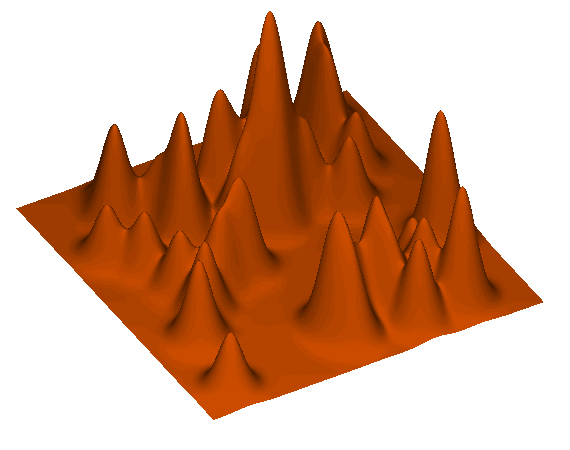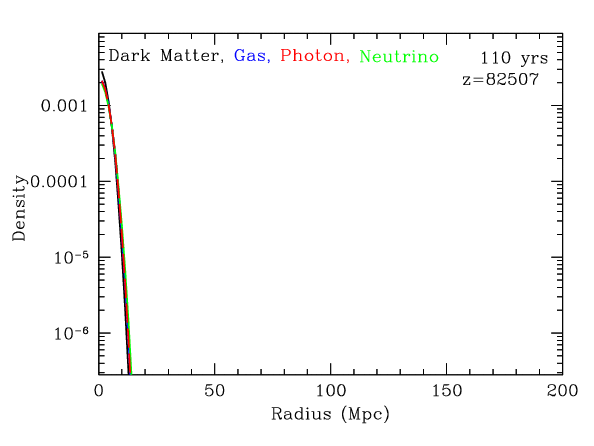So as a full member of both the American Astronomical Society and the American Physical Society, I get sent issues of the magazine Physics Today. Well, I was going through the April issue, when I saw this article:
Cosmic Sound Waves Rule
by Daniel J. Eisenstein and Charles L. Bennett
That first name sounds familiar. Why? Because he's my boss! The article requires a subscription, but seeing as how this is what my research is, why don't I tell you what the big idea is.
The Universe is full of dark matter, normal matter, and radiation. When it's young, the radiation is more important than matter, and when it's old (like now), the matter is more important than the radiation. So in a young Universe, gravity tries to make matter collapse. The dark matter and normal matter start to fall in, and the radiation says, "no way, sucker, I'm gonna push you out!" The dark matter doesn't see the radiation, and just keeps falling. But the normal matter gets pushed back out. So wherever I have a big gravitational clump forming, some of the normal matter ripples outward, like so:

Now in the real Universe, the radiation stops pushing that peak outwards, and there are many peaks all atop one another. So the Universe really winds up having the normal matter distributed like this:

So what we do is we calculate how the different bits of collapsing normal matter get pushed out relative to all the matter that gravitationally collapses. Here's a (big) animation that shows how the densities are correlated:

You'll notice, after looking at this animation, that there's a preferred distance that matter gets separated by. This is the whole point: galaxies will be preferably clustered at that specific distance scale. So I can measure (with WMAP, or any CMB satellite, for instance) what that scale is at the CMB. I then measure what that scale is in the galaxies at different redshifts, and I learn how the Universe has expanded. This size scale acts like a ruler: the expanding Universe causes the ruler to expand. If I get enough good measurements, I can learn more about what's in my Universe making it expand (e.g., dark matter, dark energy, alternate theories of gravity, etc.), and it's especially good for dark energy.
And that's what I'm researching right now. In fact, we have a paper coming out next week! (I'll link you to it when it goes up, but I warn you, it's technical!) Pretty cool stuff, and although there's complicated physics, it's a very simple idea! Happy Friday, and if you haven't been around all week, check out some of the other posts (on the left); they were really fun to write!

very good